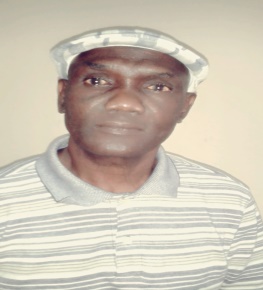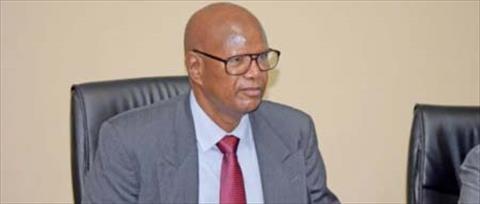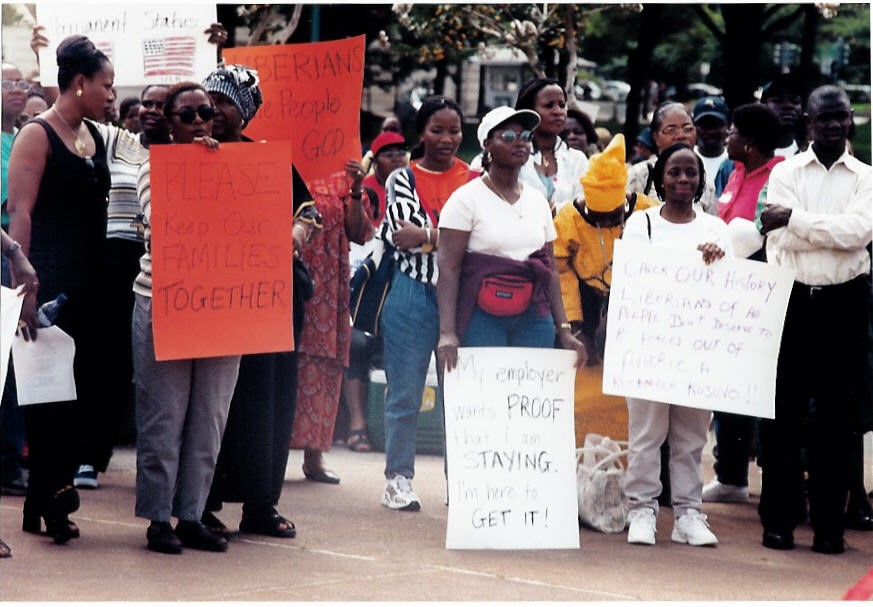Dr. Ousman Gajigo
The more one thinks about the release of the Junglers, the more it becomes clear what a truly bad decision it was. The reasonings provided by our Justice Minister, Mr. Tambedou, demonstrates that he has remarkably poor decision-making skills for someone in such a key position. As the chief legal advisor to the government, this should be a major concern for all Gambians.
The problem does not end with just the release of the four Junglers. Sanna Sabally, for instance, is still free despite having admitted to murder and giving orders to kills several individuals in cold blood. And General Alagie Martin is still free despite having participated in numerous torture sessions. There are many more. Not only did Mr. Tambedou demonstrate poor reasoning skills overall, but he also muddled the discourse on due process and rendering justice.
One of the justifications used by the Justice Minister to defend his release of the Junglers is that these individuals should be treated just like other suspects who are still walking free, irrespective of the degree of their notoriety. The principle of equality should always be an important consideration but is misapplied in this situation. Rather than insisting that the Junglers should be released just because other possible guilty parties are also free, the Justice Minister’s challenge is to explain why anyone that is accused of serious human rights violation is walking free instead of being detained.
When serious crimes are committed and incriminating evidence points to a suspect, the expectation should be that the suspect should be prosecuted. Barring acquittal, the burden on the law enforcement and judicial officers is to explain why a likely guilty party is walking free instead of sitting in jail. That Mr. Tambedou makes such a basic and glaring error speaks volumes about his competence or lack there of.
What’s more, it is not for lack of evidence that these Junglers should be walking free. Many of them have actually confessed. Numerous pieces of evidence have been provided by victims. Other perpetrators have provided corroborating evidence. Furthermore, one should assume that investigations have been on-going (or should have been) since the Barrow government came to power if our Ministry of Justice has been taken its responsibilities seriously. In other words, sufficient evidence should be available to charge these serious offenders with crimes that should have kept them confined.
Moreover, the length of time that these Junglers have been detained is not a valid reason for their release. What is important is whether or not they were detained in accordance with due process. It is indeed possible to confine the Junglers and other implicated individuals while following due process. What should have happened was to place the Junglers under detention in the normal criminal code instead of under the military code. And charges should have been filed within 72 hours of their arrest as due process demanded.
With all the evidence that should have been available through investigations and sworn testimonies, it should be easy to charge these individuals with lesser crimes while more major crimes are fully investigated. After all, not all indictments have to be made at the same time. Furthermore, applications of bail should easily be denied if the prosecuting teams do their jobs well for reasons such as possible witness tampering, destruction of evidence and likely flight from justice.
Another one of many flaws in Minister Tambedou’s terrible decision to release the Junglers is that it’s apparent that he has prejudged the cases when he has no basis for doing so. He essentially determined, through his own subjective assessment, that the four Junglers have cooperated and told the whole truth to the TRRC. But that is impossible to determine at this stage. For one, the TRRC has not finished it work. Other relevant perpetrators, including collaborators and co-conspirators are at large.
The possibility that the four Junglers were not 100% truthful cannot be dismissed at this stage. Even the possibility that they lied under oath to lessen their degree of involvement in crimes they confessed to cannot be fully determined at this stage before all the relevant investigations are completed. Therefore, Mr. Tambedou’s conclusion that the Junglers should be released now because they supposedly cooperated truthfully and fully is highly premature.
As I have argued in an earlier article, shortening the length of pre-trial detention of those accused of serious human rights abuse is an inappropriate means of incentivizing cooperation for either the TRRC or normal criminal prosecution. After all, the sentences for those crimes after a conviction are far higher than the length of time the Junglers were under detention. If enduring pre-trial detention is enough to disincentivize someone from cooperating with the TRRC, then they must be confident that there would not be any trial at all for their crimes once the TRRC is done. After all, pre-trial confinement is a blink of an eye when compared to life imprisonment – the appropriate punishment for someone guilty of murder. Does our Justice Ministry have a plan at all for trying the serious crimes committed under the Jammeh regime?
The proper way to incentivize cooperation from Junglers and others implicated in serious human rights violation is to promise leniency if they cooperate. The cooperation should include all possible investigations, including the TRRC proceedings. For crimes that would have resulted in life imprisonment, leniency could result in a sentence of 15 years or so in jail. Those who did not fully cooperate should face life imprisonment with no possibility of parole. This way, cooperation with the TRRC would be enhanced while justice takes its course.
More than anyone, Mr. Tambedou has contributed to the widespread erroneous belief that normal criminal prosecution of individuals complicit in Jammeh-era crimes would interfere with the work of the TRRC. This could not be farther from the truth. The fact of the matter is that the investigation and prosecution of the likes of Sanna Sabally and the Junglers can be done without interfering with the work of the TRRC. After all, the passage of the TRRC Act did not suspend the regular criminal code, and nor does it even include the prosecution of crimes, which is a necessity for rendering justice. So whether as a legal or procedural matter, the prosecutions of individuals accused of serious human rights abuses must proceed if the government takes the issue of justice seriously.
Finally, it does not make any sense, and is certainly morally wrong that we have hundreds of people incarcerated for crimes that are far less serious than what the Junglers and the likes of Sana Sabally have admitted to. Under what twisted principles is it OK that those people languish in jail while the Junglers and Sanna Sabally can be seen prancing about in town? The principle of equality before the law dictates that no individual or group of citizens should be privileged or discriminated against when it comes to law enforcement. It does not prescribe that faulty steps made in one case can be used as an excuse to shield another individual from prosecution. There is therefore no sound basis, legally or morally, to have the Junglers walking free. In addition to being an obstacle on the road to justice, Mr. Tambedou also unwittingly removed all doubt about his unsuitability for the position of Minister of Justice and Attorney General.
Ousman Gajigo is an economist. He has held positions with the African Development Bank, the UN, the World Bank and Columbia University. He holds a PhD in development economics. He is currently an international consultant and also runs a farm in The Gambia.




